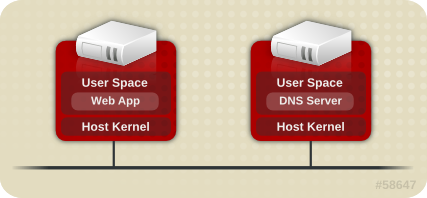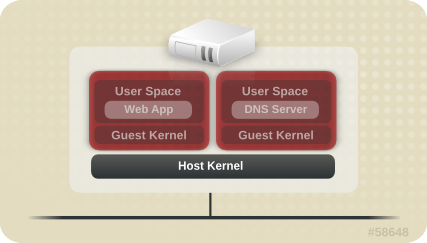A virtualized environment presents opportunities for both the discovery of new attack vectors and the refinement of existing exploits that may not previously have presented value to an attacker. Therefore, it is important to take steps to ensure the security of both the physical hosts and the guests running on them when creating and maintaining virtual machines.
Non-Virtualized Environment
In a non-virtualized environment, hosts are separated from each other physically and each host has a self-contained environment, which consists of services such as a web server, or a DNS server. These services communicate directly to their own user space, host kernel and physical host, offering their services directly to the network.
Virtualized Environment
In a virtualized environment, several operating systems can be housed (as guest virtual machines) within a single host kernel and physical host.
When services are not virtualized, machines are physically separated. Any exploit is, therefore, usually contained to the affected machine, with the exception of network attacks. When services are grouped together in a virtualized environment, extra vulnerabilities emerge in the system. If a security flaw exists in the hypervisor that can be exploited by a guest instance, this guest may be able to attack the host, as well as other guests running on that host.

